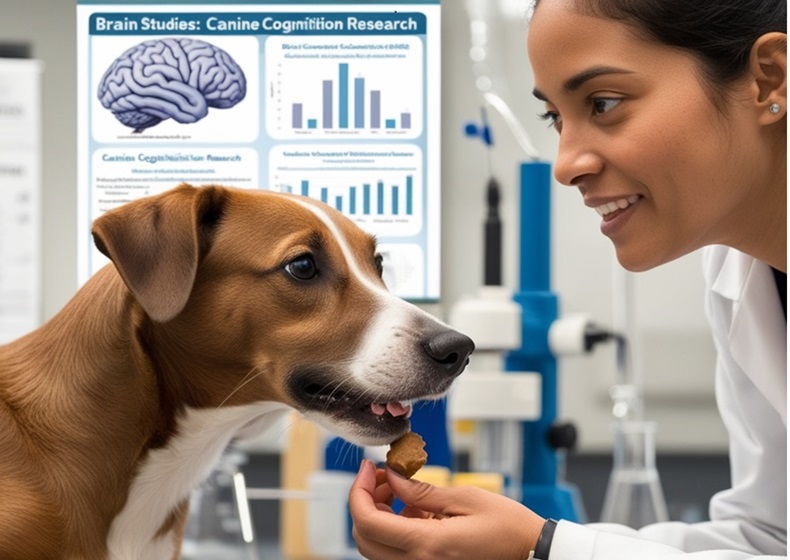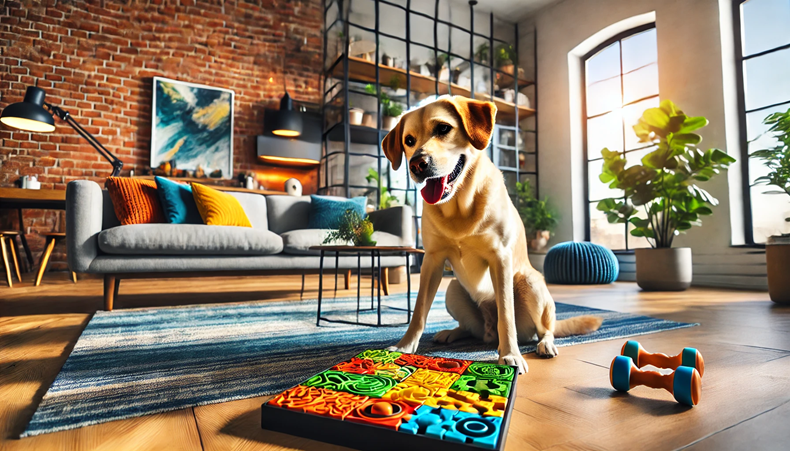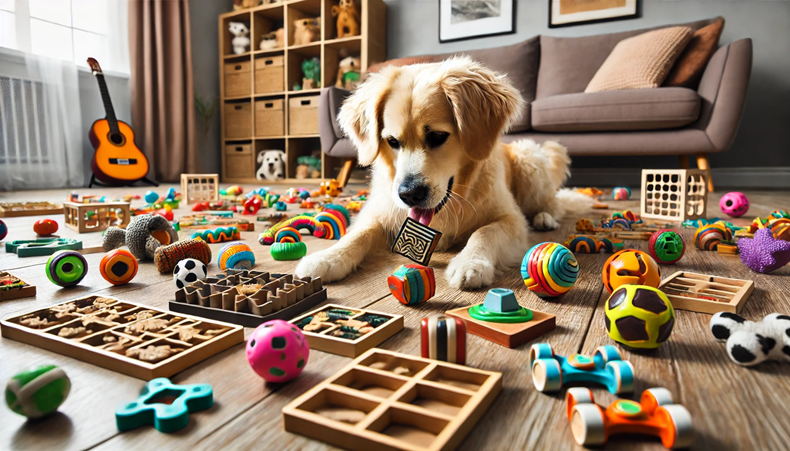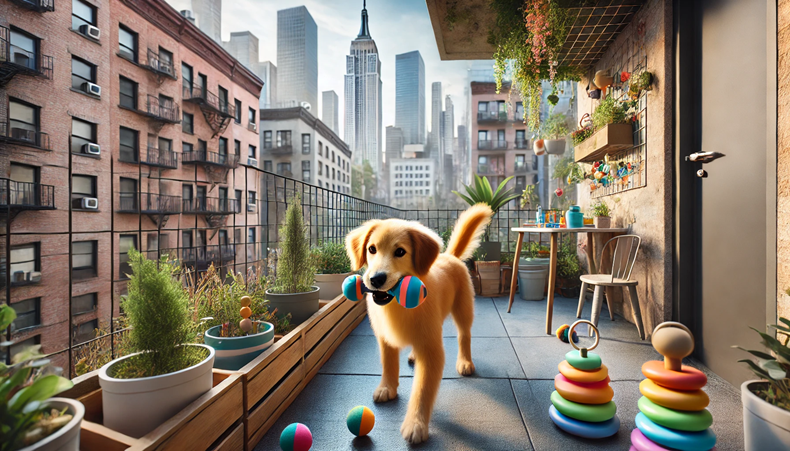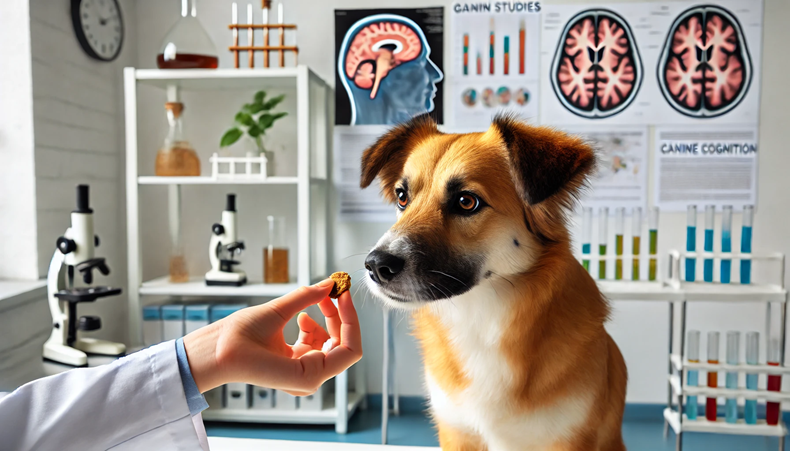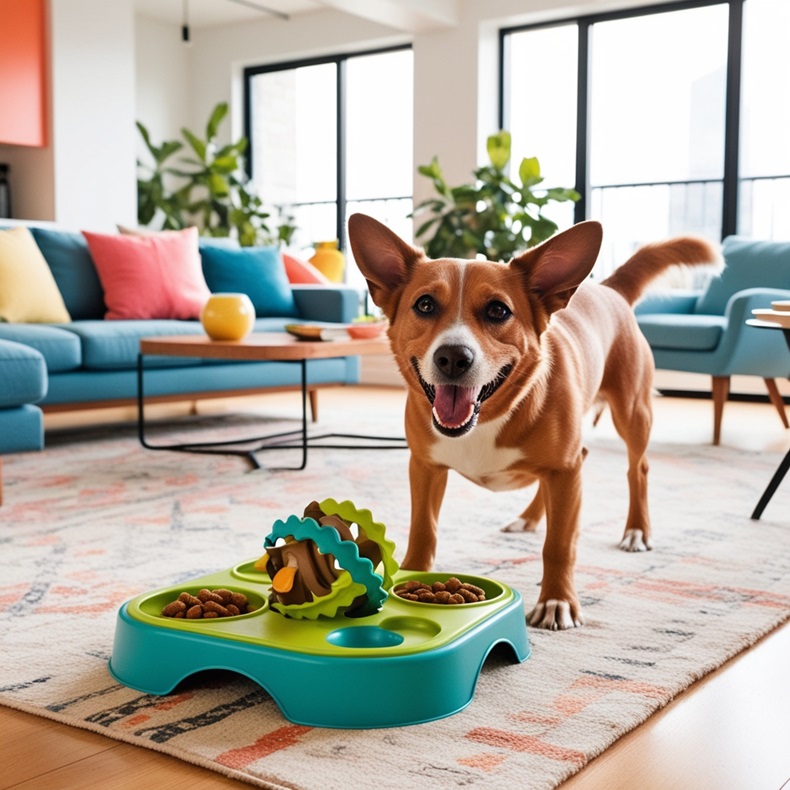Canine Cognition: Stimulating Games and Puzzles for Urban Dogs
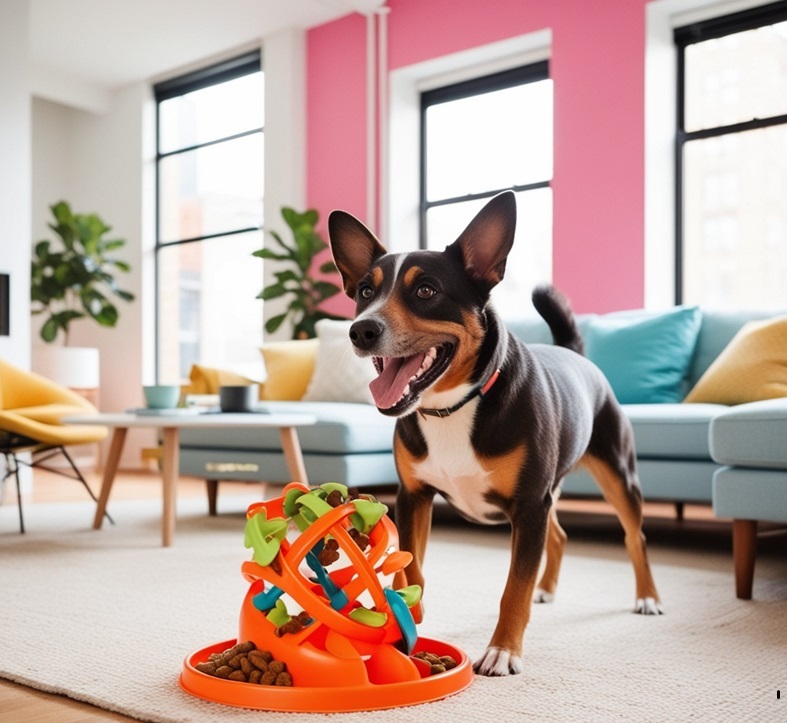
It’s sad but true. Like humans, canine cognition decreases over time. Dogs can experience dementia and other forms of mental decline. They may exhibit confusion, withdraw from social activities, have accidents, and show other signs that they are not themselves. While scientists are unsure what causes canine cognitive dysfunction (CCD), they know stimulating dog intelligence games and puzzles can help. In addition to preventing dementia, these activities will make your dog happy and help them reach developmental goals. This article will discuss canine cognition and suggest games and activities that will keep your dog’s mind sharp.
What is Canine Cognition?
The Canine Cognition Center at Yale was established in 2013 to explore all aspects of the dog mind and determine what makes them different from humans. It was found that, in some respects, dogs can outsmart humans.
For example, human babies tend to over-imitate. If they see an adult perform a task, they copy their movements when performing the same tasks.
If dogs see a human complete a task, such as retrieving a treat, they will eliminate the extraneous steps and focus only on the moves required to get the treat.
Researchers continue to conduct studies to determine how canine cognition varies between dogs and humans and different dog breeds. However, there is no doubt that dogs are intelligent beings.
Why Mental Stimulation is Crucial for Urban Dogs
Why Mental Stimulation is Crucial for Urban Dogs
Mental stimulation is essential for urban dogs. Dogs that don’t receive stimulation become bored and depressed. They may act out by destroying furniture and becoming aggressive.
Canines can benefit by engaging in urban dog activities. A study published on Springer Link revealed that dogs who enjoy physical activity tend to exhibit better cognitive abilities. It also showed that life-long training can enhance cognitive performance.
How Dogs Learn
Research shows that dogs learn through classical or operant conditioning. Classical conditioning occurs when a dog learns to associate two stimuli with each other. For example, if the owner rings a bell before mealtime every day, the dog will expect food every time they hear the bell.
Operant conditioning involves the dog learning how their actions will lead to certain outcomes. For example, they learn that if they behave properly, they will receive a treat.
Many dog owners expand on classical and operant conditioning to teach their dogs through positive reinforcement. They give their dogs treats to encourage them to continue exhibiting the desired behavior. It is a preferred training strategy for most dog owners.
Dog Puzzles and Games for Mental Stimulation
Several dog puzzles and games boost mental stimulation. You may consider purchasing the following items to maintain your dog’s cognitive abilities.
- Food Puzzles: Food puzzles refer to any device dogs must maneuver around to find treats hidden inside. Dogs may lick, paw, roll, and toss to access their treats and sharpen their senses.
- Interactive Dog Toys: Interactive dog toys come in all shapes and sizes. A squeaky toy will capture a dog’s attention and encourage them to chew and play. Toys that roll or bounce will encourage dogs to determine their direction and chase after them.
DIY Cognitive Games at Home
You can also mentally stimulate your dog without spending any money. Dog intelligence games can easily be worked into your everyday routine using items you already have in your home. Your dog will benefit from the following activities:
- Dog Tricks: Teach your dog tricks to stimulate their brain. Any trick can help with canine cognition. Encourage them to sit, give a paw, close the door, or shake hands to keep their mind sharp.
- Scatter Feeding: This activity involves hiding your dog’s food in different areas of the home. They will sniff to seek out their food and stimulate their senses.
- Obstacle Courses: Set up an obstacle course in your yard using old tires, toys, mops, brooms, and bed sheets. Have your dog navigate around it for stimulating fun.
How K9U’s Cognitive Training Can Transform Your Dog
Are you concerned your dog isn’t getting enough stimulation to reduce canine cognitive decline? K9U can help.
Our Doggie Daycare offers 29,000 square feet of indoor and outdoor play space. Your dog will socialize with other dogs while enjoying supervised playtime. They will learn key social skills and get the individualized care they require.
We also provide Dog Training for puppies and adults. We offer beginner and advanced obedience classes, intensive boot camps, specialized nose work, and group socialization. All our classes are based on the positive reinforcement principles. Your dog will get the training they require to prevent aggressive behavior and boost their cognitive abilities.
K9U will keep your dog stimulated. Contact us today to book your daycare or training session.
Dog Cognition FAQs
What are the signs of canine cognitive dysfunction?
Canine cognitive dysfunction (CCD) shares similarities with human dementia and presents several signs. Early indicators include:
- Disorientation and confusion
- Changes in sleeping patterns and increased restlessness at night
- Decreased interest in playing, interacting with family members, or engaging in activities previously enjoyed
- Having accidents indoors despite being house-trained
- Increased anxiety or irritability If you observe these symptoms in your dog, it’s essential to consult a veterinarian for an accurate diagnosis and appropriate management plan.
How often should I engage my dog in cognitive activities?
Engaging your dog in cognitive activities daily is optimal for maintaining their mental health. Aim for at least 15-30 minutes of mental stimulation each day. Incorporate a variety of games and puzzles to keep your dog interested and challenged. Consistent, daily mental exercise can significantly enhance your dog’s cognitive abilities and overall happiness.
Can older dogs benefit from cognitive games?
Yes, older dogs can greatly benefit from cognitive games. These activities help to slow down cognitive decline and keep their minds sharp. Engaging senior dogs in age-appropriate puzzles and games can improve their quality of life, reduce anxiety, and maintain their cognitive functions. It’s important to select activities that match their physical abilities and cognitive level to ensure they remain enjoyable and effective.
What are the best toys for stimulating a dog’s mind?
The best toys for stimulating a dog’s mind include:
- Food Puzzles: Toys like KONGs, treat-dispensing balls, and puzzle feeders that require dogs to figure out how to access treats.
- Interactive Toys: Squeaky toys, toys that roll or bounce unpredictably, and interactive plush toys with hidden compartments.
- Snuffle Mats: Mats with fabric strips where treats can be hidden, encouraging dogs to use their noses and paws to find them.
- Chew Toys: Durable chew toys that keep dogs occupied and help maintain dental health. These toys challenge a dog’s problem-solving skills and keep them engaged for extended periods.
How does K9U personalize training for different dogs?
K9U personalizes training by tailoring programs to the individual needs, temperament, and learning style of each dog. Our positive reinforcement techniques ensure a fun and effective learning experience. We offer various classes and activities, including beginner and advanced obedience, intensive boot camps, specialized nose work, and group socialization. By assessing each dog’s unique characteristics and adjusting the training approach accordingly, K9U provides effective learning outcomes and long-lasting behavioral improvements.

